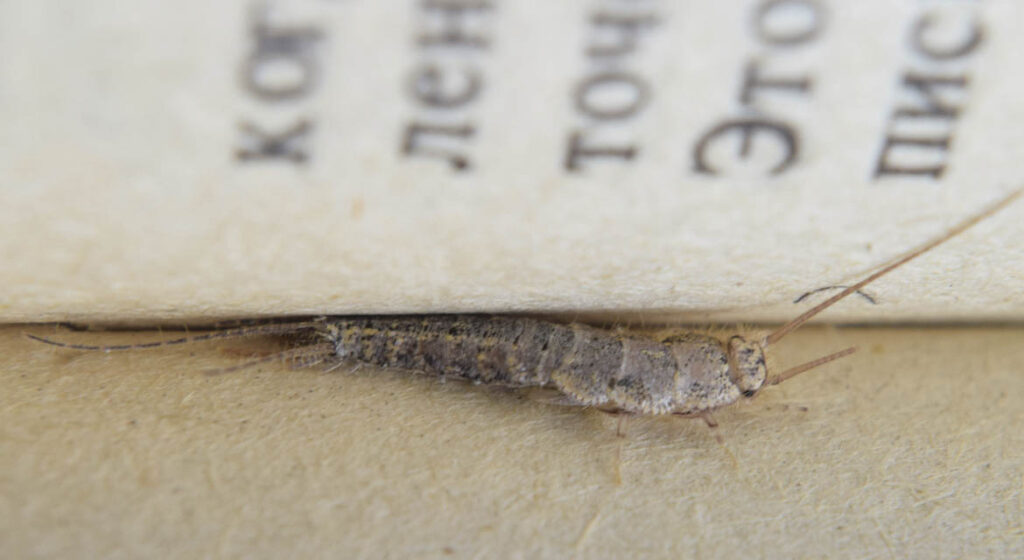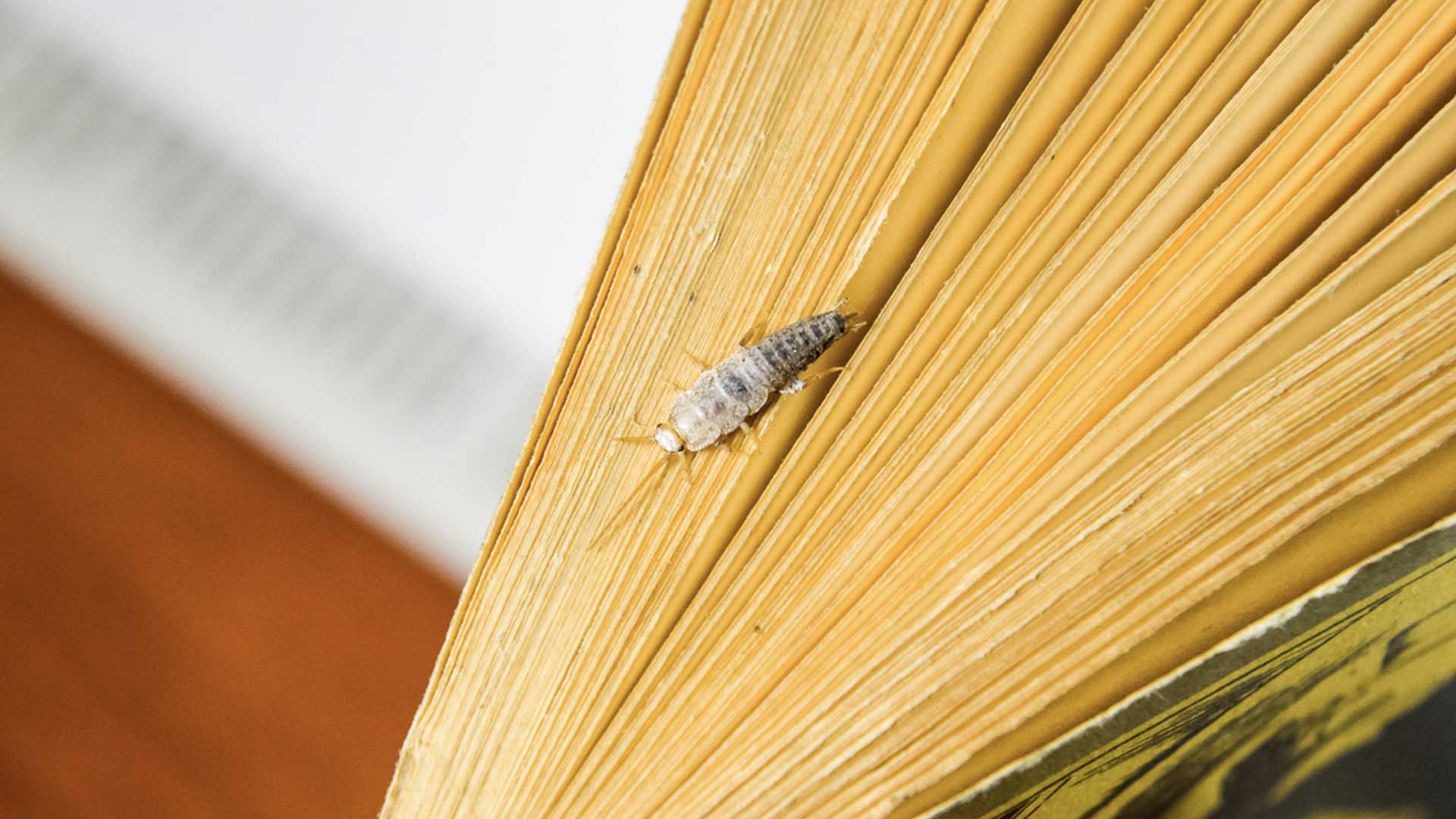
Do Silverfish Pose Any Health Risks to Humans?
Silverfish are a common household pest found in many homes, often in damp and dark places such as crawl spaces or basements. Silverfish thrive in environments with high humidity levels, which means they are also commonly found in areas like bathrooms and kitchens. While they may not be harmful in the same way that other pests, such as mosquitos or ticks, can be, many people wonder whether silverfish pose any health risks to humans or pets. Here are three key points:
- Silverfish do not pose direct health risks to humans as they do not transmit diseases or bite.
- While silverfish themselves are not a health threat, their presence can lead to economic losses by damaging books, papers, and fabrics, and their shed skins and feces may trigger allergies or asthma symptoms in sensitive individuals.
- Prevention of silverfish infestations is important to mitigate potential indirect risks, such as reducing moisture, removing food sources, and sealing entry points to deter their presence.
Are Silverfish Harmful to Humans?
One of the main concerns about silverfish is that they are often found in areas where food is stored. They are attracted to starchy and sugary foods, as well as pet foods, which means they can easily contaminate food products. Consuming contaminated food can lead to food poisoning, which can cause a range of symptoms from mild digestive upset to more severe illness.
In addition to contaminating food sources, silverfish can also cause property damage. They are known to chew on paper products such as books and can cause damage to fabrics such as curtains or upholstery. The damage caused by silverfish can be costly to repair. It can also release harmful particles into the air, which can cause respiratory problems for humans or pets with asthma or allergies.
While silverfish are not directly harmful to humans in the same way that other pests may be, they can still be a nuisance and can cause property damage. Addressing potential food sources and keeping living spaces clean and tidy is essential to prevent silverfish infestations. This means ensuring that food is stored in sealed containers, surfaces are regularly cleaned, and any cracks or holes in walls or floors are repaired.
If a silverfish infestation occurs, you can use various natural and effective methods to eliminate these pests. Boric acid and diatomaceous earth can kill silverfish, while a pest control professional can provide more extensive treatment options.

Truly Nolen GUARANTEE
If you’re not completely satisfied, you’ll get a full refund on your most recent service with our 100% money back guarantee.

$50 Off Year Round Pest Control
Truly Nolen is a family-owned company with 85 years of experience providing the best pest control. If you’re not completely satisfied, you’ll get a full refund on your most recent service with our 100% money back guarantee.
Are Silverfish Harmful to Pets?
Pet owners can rest assured that silverfish do not pose any direct harm to their pets. Silverfish are not venomous and carry no diseases or parasites that can infect or harm pets. This means that if your pet comes into contact with a silverfish, they are unlikely to experience any harm or discomfort.
However, silverfish can indirectly harm pets by contaminating their food sources. Silverfish are attracted to the starchy content of many pet foods, which means they can contaminate food products with their excrement and shed skin. Consuming contaminated food can lead to food poisoning, which can cause a range of symptoms from mild digestive upset to more severe illness.
Moreover, if your pet is allergic to silverfish or their shed skin, being in a space infested with silverfish can worsen their symptoms. The shed skin and droppings can trigger allergy symptoms like itching, sneezing, and runny nose. If your pet is experiencing allergy symptoms, it’s best to keep them away from infested areas until the silverfish infestation has been eliminated.
Pet owners can take steps to prevent silverfish infestation by addressing potential food sources and keeping living spaces clean and tidy. This means ensuring that pet food is stored in airtight containers, surfaces are regularly cleaned, and any cracks or holes in walls or floors are repaired. Keeping gutters clean and fixing leaky pipes can also help to prevent silverfish infestations.
In the rare case where a pet has ingested a silverfish, it’s important to monitor them for any changes in behavior or unusual symptoms. If you observe any signs of illness or discomfort in your pet, seek veterinary advice immediately. So while silverfish do not pose any direct harm to pets, they can indirectly harm them by contaminating their food sources and triggering allergic reactions. Pet owners can take preventative measures to avoid infestations and minimize potential risks to their furry companions.
What About Silverfish Bites?
While silverfish are not considered harmful to humans, many people wonder whether they can bite and cause discomfort.
Silverfish do have mouthparts that they use to feed on their food sources, but they do not bite humans. They cannot pierce human skin with their mouthparts, which are designed for scraping rather than biting. Therefore, the idea of a silverfish bite is a myth.
However, some people may experience skin irritation or itching after encountering silverfish. This is usually due to an allergic reaction to the silverfish’s shed skin or droppings, which can trigger an immune response in some individuals. The severity of the symptoms can vary depending on the individual and the level of exposure to the allergen.
Symptoms of a silverfish allergy can include itching, redness, and swelling at the site of contact with the insect or its debris. In more severe cases, these symptoms can lead to hives, difficulty breathing, and anaphylactic shock. It is important to seek medical attention immediately if you experience any symptoms of a severe allergic reaction.
If you have a silverfish infestation in your home and are experiencing allergic symptoms, it is best to take steps to eliminate the infestation and reduce exposure to the allergens. This can be done by using natural methods like boric acid or by seeking the help of a professional pest control service. Be sure to vacuum regularly and use an air purifier or air filtration system to eliminate airborne allergens.
Concerns About Food Contamination
Silverfish, despite their small size, can pose a significant threat when it comes to food contamination. These nocturnal pests are attracted to starchy and sugary substances, making your pantry a prime target. They can easily chew through paper, cardboard, and plastic packaging, gaining access to your stored food items. Once they contaminate food with their feces, shed skin, and body parts, they introduce bacteria and pathogens that can lead to various health issues.
Consuming contaminated food can cause food poisoning, gastrointestinal problems, and allergic reactions. It is essential to keep food stored in airtight containers and regularly inspect your pantry for signs of silverfish infestation to prevent the risk of food contamination. If you see damaged food items, you should dispose of them immediately by securely bagging the food and disposing of the bag in a covered indoor or outdoor trashcan.
When Should I Call A Truly Nolen Professional About Silverfish?
Silverfish are a common household pest that can be quite difficult to eliminate. So, when should you call a Truly Nolen pest professional to treat a silverfish infestation? Here are some signs that it may be time to seek professional help:
1. Yellow stains: Silverfish are notorious for leaving behind yellow stains on walls, floors, and other surfaces. If you notice these stains around your home, it could be a sign of a silverfish invasion.
2. Holes in fabrics: Silverfish love to chew on fabrics like clothing and bedding, leaving behind small holes. If you notice these types of holes around your home, you may have a silverfish infestation.
3. Damage to book bindings: Silverfish are also known for their love of paper products, including books. If you notice damage to the bindings of your books, it’s a good indication that silverfish may be present.
4. Food sources: As mentioned, silverfish are attracted to starchy food items like cereal and pet food. If you notice signs of silverfish feeding on these items, it’s time to seek professional help.
Our Truly Nolen pest professionals are highly trained and experienced in treating silverfish infestations. They use a variety of effective methods, including natural options like boric acid, to eliminate silverfish and prevent future infestations. They can also help you identify and eliminate food sources and moisture problems that may attract silverfish to your home.
If you suspect a silverfish infestation, don’t wait to call a Truly Nolen pest professional. The sooner you address the problem, the easier it will be to eliminate and the less damage it will cause to your home. With the help of one of our highly-trained pest control technicians, you can get rid of silverfish and enjoy a pest-free home.

$50 Off Year Round Pest Control
Truly Nolen is a family-owned company with 85 years of experience providing the best pest control. If you’re not completely satisfied, you’ll get a full refund on your most recent service with our 100% money back guarantee.
Frequently Asked Questions
Why are silverfish attracted to my home?
Silverfish are attracted to homes because they seek out dark and damp environments with a source of food. They are commonly found in areas with high humidity levels and are drawn to starchy materials, such as paper, books, cardboard, and fabrics.
Do silverfish pose any health risks to humans?
Silverfish do not pose significant health risks to humans. They do not bite or transmit diseases. However, their presence can be a nuisance and they may cause damage to belongings, particularly items made of paper or fabric. Learn More!
How can I prevent silverfish from entering my home?
To prevent silverfish from entering your home, reduce moisture levels by using dehumidifiers or improving ventilation in damp areas. Seal cracks and crevices in walls, floors, and foundations to minimize their entry points. Additionally, store books, papers, and fabrics in sealed containers or plastic bags to limit silverfish access to their food sources.
Can silverfish infestations be eliminated completely?
With proper preventive measures and targeted treatments, it is possible to significantly reduce silverfish populations and prevent future infestations. However, completely eradicating silverfish from an environment can be challenging, as they are resilient and can hide in hard-to-reach areas. Regular monitoring, maintaining cleanliness, and taking appropriate control measures can help manage silverfish infestations effectively.
What are effective treatment options for silverfish infestations?
Effective treatment options for silverfish infestations include using insecticidal sprays or dusts designed for silverfish control, placing sticky traps in infested areas, and applying desiccant powders that dehydrate and kill the pests. In addition, addressing moisture issues, removing their food sources, and maintaining good hygiene practices can complement the treatment efforts. For severe or persistent infestations, consulting with a professional pest control service may be beneficial.

